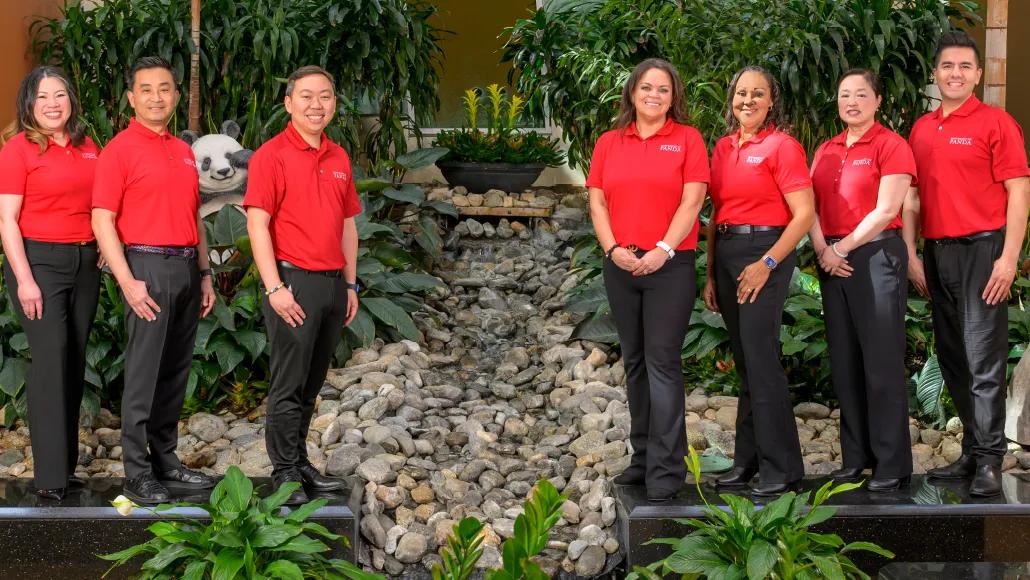TD Magazine Article
Member Benefit
Dishing Up Leadership Development
This restaurateur launched a highly customized development program that rapidly advances associates into critical roles.
Mon Jun 16 2025
Panda Restaurant Group: 2025 BEST Award Winner, #1
Rosemead, California
6-Time Winner

Panda Restaurant Group, parent company of Panda Inn, Panda Express, and Hibachi-San, is the largest family-owned, quick-serve Chinese restaurant chain in the US. The business has more than 2,500 locations, and it has plans to open 120 new restaurants per year in the future.
"To meet our ambitious growth targets, Panda must recruit, hire, and prepare more future leaders faster," says Dora Lee, executive director of L&D.
She explains that for each new location, the company must employ restaurant managers responsible for the day-to-day operations of a single location, as well as training leaders and area coaches of operations. Training leaders oversee the management of one restaurant and help train other local managers; area coaches of operations supervise the operations of seven to 15 restaurants, are responsible for achieving financial targets up to $64 million in annual revenue, and recruit and develop the managers who work in those locations.
According to Lee, there was a "major need to not only bring on and train new managers but develop associates internally who can move quickly into these roles." That challenge inspired the Fast-Track Leadership Development Initiative.
Accelerating manager development
To develop the innovative new program, the L&D team examined existing leadership development pathways and courseware and conducted questionnaires, focus groups, and curriculum reviews with the chief operating officer, vice presidents of operations, regional directors, and other members of the senior leadership team to uncover development gaps and identify growth opportunities. The result was a high-touch program comprised of three key components.
Identification of high-potential associates. Twice yearly, general managers, training leaders, and area coaches of operations evaluate associates' performance and competencies. The company bases evaluations on key performance indicators for specific role descriptions (Do they meet high customer service targets?) and general leadership behaviors and mindsets critical for advancement (How well do they listen to and communicate with their teams and guests?).
In addition, HR and operational managers collaborate during annual people-planning sessions to discuss associates' accomplishments and strengths. The L&D team provides information on training completion rates, Level 2 scores on requisite courses, and observations on their behavior during learning events.
Lee notes that in addition to pinpointing people who continually achieve high performance goals, they're seeking associates with an appetite for growth: "Do they have the passion we're looking for? Do they want to develop their skills? Do they want to grow their careers with Panda?"
Auto-registration into leadership courses. The University of Panda offers a structured, progressive learning curriculum that supports career growth for all employees, from entry-level positions to executive roles. Courseware and content focus on both best practices for the restaurant industry and leadership skills and competencies.
For starters, some 40,000 restaurant operators are eligible to participate in the university's Store Leadership Training System, which offers a road map for advancing from front-of-house and back-of-house roles, such as counter help and cooks, into assistant manager and general manager positions. After completing the Store Leadership Training System, associates can enter the GO curriculum, a leadership program where employees progress through five levels. As associates successfully complete courses and advance through the levels, they become eligible for promotion.
To avoid any stagnation, the L&D team proactively registers Fast-Track candidates for their next class. "Sometimes life happens. They're busy taking care of their stores, so they're not attending courses or accessing learning," Lee explains. "We don't want to lose track of these people. Someone on my team follows up with them to see what they need to keep going. We keep them moving forward."
Personalized development. Managers work closely with program candidates to create individual development plans that outline critical development areas, specific actions the associate can take to advance, and career path options.
"Managers collaborate with L&D professionals to find ways to help candidates close specific skills gaps," Lee states. For example, time management is a common issue. In that instance, she imparts that L&D will recommend additional learning resources available through the learning management system, suggest books or videos, and even coach the manager to start a new activity such as setting aside an hour each Sunday night to plan out the next week's meetings and high-priority tasks.
L&D also works with managers to develop and co-facilitate 90-minute virtual sessions that help candidates prepare for their GO curriculum courses. Post-session, L&D facilitates one-on-one coaching for Fast-Track associates, in person or virtually, with managers or subject matter experts. For example, L&D can connect a finance department SME with a candidate who needs mentoring and guidance on how to manage labor costs.
Serving results
The outcomes of the Fast-Track Leadership Development Initiative are undeniable. Through 2024, the company promoted program participants an average of nine months faster than previous years and more than doubled the number of promotions overall. More than 550 store managers passed their GO courses and received a promotion to general manager. Likewise, nearly 120 candidates became training leaders, and 55 received promotions to area coaches of operations.
The restaurateur also achieved outcomes it did not anticipate—but appreciates nonetheless. Topping the list, says Lee, is how participants continue "to actively network with their GO course cohorts for ongoing support. They continue to check in with their peers and informally meet to share experiences and best practices."
Likewise, new behaviors from Fast-Track participants help build a culture of trust and respect that is proving to reduce turnover. In 2024, the company significantly outperformed the average turnover rates for quick-service restaurants for both hourly and management associates (121 percent and 52 percent, respectively). Average turnover for Panda was nearly half, at 73 percent for hourly workers and 26 percent for management.
What's more, Lee believes the partnerships L&D forged with those among the operational leadership ranks to design and develop the Fast-Track Leadership Development Initiative sets up the company for future development.
"A deepened trust and partnership with operational leaders continues. New strategy meetings with senior leaders have generated more agile and creative learning efforts," she says. "Consistent, active involvement from C-level executives and senior leaders sets a strong foundation for people development at every level."

